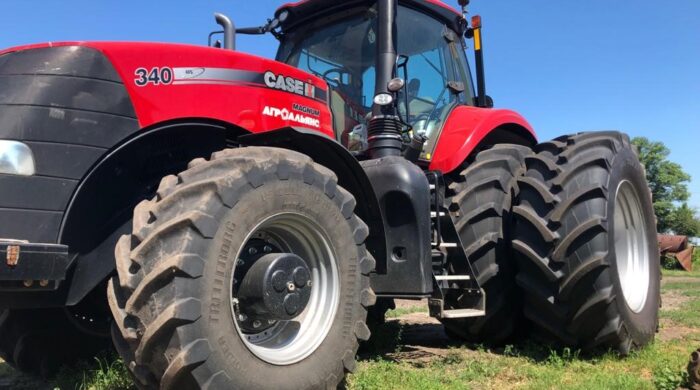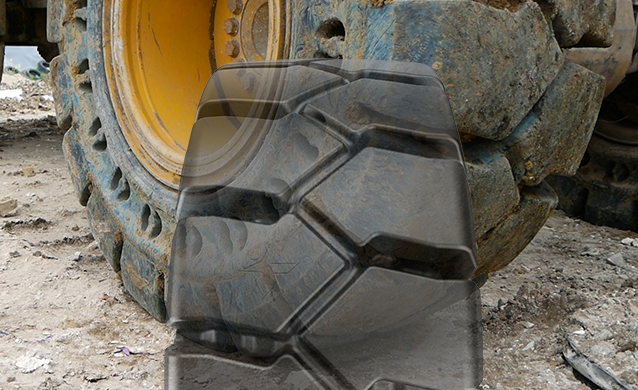Tractor Tire Tread Type Guide
This guide explains the differences between each farm tire tread type and highlights the applications in which each tread style performs best.
There are 7 main categories of Agricultural tires, the below guide breaks down each category and what makes the differences between each tread type:
R-1
The R-1 tread is perhaps the most common tread type for any tractor from 30 up to 150 hp. It is typically used on 2-wheel drive tractors, mechanical front-wheel drive tractors, combines, self-propelled sprayers, and on large grain carts or other implements carrying heavy loads. The R-1 tire is designed for general farm use and provides the best traction under average soil conditions. R-1 tires can be radial or bias ply construction.
R-1W
The R-1W tread patterns were originally designed as a fit between the R-1 and the R-2. The R-1W has approximately 20% deeper tread than an R-1 and 20% less tread than the R-2. The R-1W is considered the ideal tread depth tire for use in general farming, construction, or transport applications mostly only offered in radial tire construction. MAXAM’s AGRIXTRA family of products are mostly R1-W farm tires with a 45-degree lug profile that provides excellent traction in the field and wears well on the highway. The extra tread depth gives farmers and growers longer wear rates, delivering a higher value on their investment. Discover MAXAM’s AGRIXTRA R1-W agricultural tires.
R-2
The R-2 tread type is designed for farming in extremely muddy or heavy traction soil conditions such as rice, sugar cane, and vegetables in heavily irrigated soils. The tread on an R-2 tire is at least two times deeper than an R-1 tire. In some of these conditions, the R-1W is used where the dirt is wet, but not muddy. The R-2 does not do well when driven on the road because the lugs are deep, bend easily, and can develop uneven or irregular tread wear.
R-3
The R-3 tread type is designed to minimize soil disturbance traditionally using a diamond tread. The R-3 tread is typically 1/2 as deep as an R-1 tread and is best used for farming in sandy soils where traction and flotation are needed. R-3 tires are commonly found on grassy or hay field applications and can be used as implement tires carrying heavy loads.
R-4
The R-4 tread type is a construction or industrial design, otherwise known as a multipurpose tire. Manufactured with a wider tread, the R4 is designed for improved stability, traction, and hard surface use. Delivering minimal soil disruption, even on soft turfs like moist soil or mud, R4 tires use a large, shallow tread that effectively cleans dirt and mud off to improve traction. Finally, R-4 tires are built for hard duty or tough applications and are typically puncture-resistant, making them longer-lasting than most other agricultural R-series tires. Discover MAXAM’s MS909R and MS910R R-4 Tire Series.
I-1
I-1 has been designed for field, road transport, and soil tillage operations with implements and trailers. I-1 is a standard trailer or implement tire that optimizes travel times so that you can focus on your core business. The special tread design ensures a long service life in harsh conditions. Discover MAXAM’s MS963 and MS965 I-1 implement Tire Series.
I-3
The I-3 tire is a traction tread with a bar-type tread similar to R-1 tires. It is primarily found on heavy-load implements like tankers, manure carriers, and heavy-duty implements. I3 Tires have the capability to be utilized on-powered equipment in certain applications when looking for both flotation and traction but shallower tread than an R-type tire. Discover MAXAM’s AGILXTRA, FLOTXTRA, and MS966 I-3 Tire Series.
For more information on MAXAM’s agricultural tires click here



